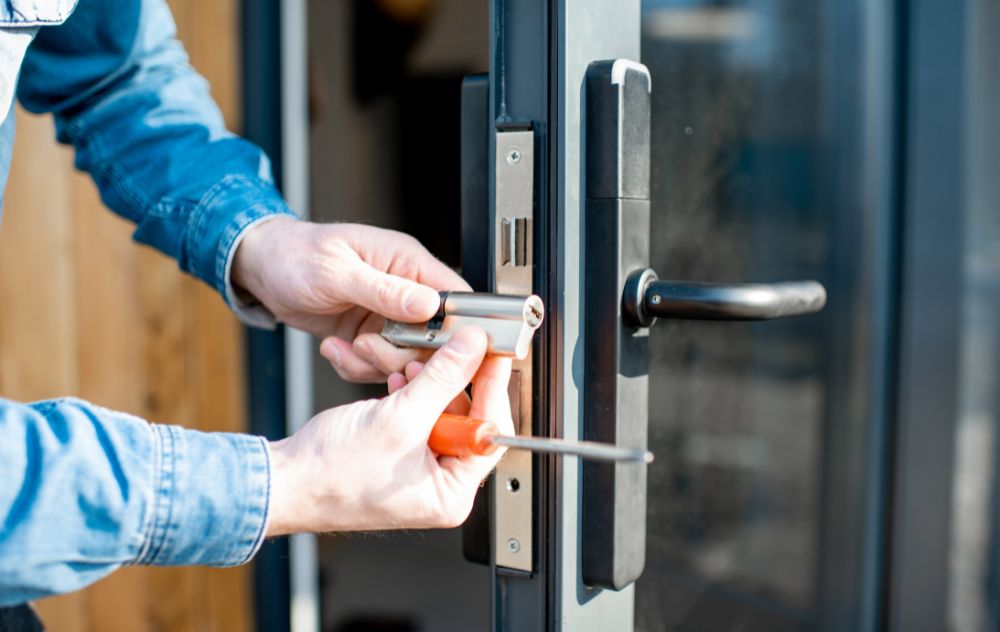Recent times have witnessed a fascinating trend among Londoners: an increasing number of people are changing their locks. While this might initially seem like a mundane matter, the underlying reasons offer intriguing insights into the city’s evolving dynamics. One compelling factor is the rise in remote work arrangements, which has propelled many individuals to rethink their living situation and prioritize safety and security. With more time spent at home during working hours, Londoners are recognizing the importance of robust lock systems to protect their loved ones and valuable possessions lock change london.
Another surprising catalyst for this shift is the rapid growth of short-term rentals in London. The rise of platforms like Airbnb has turned many homeowners into part-time landlords, providing accommodation for travelers from all corners of the globe. This new reality raises concerns about who has access to one’s property and underscores the need for heightened security measures. Consequently, Londoners are taking proactive steps to safeguard their homes by installing state-of-the-art locks that enhance privacy and restrict unauthorized entry.
Overall, it is evident that behind the seemingly unremarkable act of changing locks lies a fascinating glimpse into London’s changing landscape. From embracing remote work culture to navigating an increasingly transient society dominated by short-term rentals, these factors have reshaped how individuals approach home security. As technology advances and societal trends evolve further down unpredictable paths, it will be intriguing to see how Londoners continue to adapt and prioritize their safety needs in innovative ways.
The rising trend of Londoners changing locks
The rising trend of Londoners changing locks may seem like a cause for concern, but the truth behind it might surprise you. While some may assume it’s due to an increase in crime rates or a general sense of insecurity, the reality is far more fascinating. Londoners are changing their locks not because they fear outsiders invading their homes, but rather because they want to assert control over who enters their spaces.
In a city known for its vibrant cultural diversity and ever-changing demographics, the act of changing locks has taken on a symbolic meaning. It represents an individual’s desire to create boundaries and protect their personal space amidst a rapidly evolving society. By changing locks, Londoners are making a statement that goes beyond just security – they are reclaiming ownership of their living environments and expressing their unique sense of identity.
Furthermore, this trend highlights another aspect of London’s dynamic social fabric: the importance placed on privacy and personal autonomy. With many people sharing flats or living in densely populated areas, having control over who can enter one’s home becomes paramount. This shift is not just about protecting physical property but also about safeguarding emotional well-being and maintaining a sense of peace amid the hustle and bustle of city life.
Increase in burglaries: Safety concerns for residents
One might assume that the increasing number of burglaries in London is the primary concern driving Londoners to change their locks. While safety concerns for residents are certainly valid, there is a surprising truth behind this growing trend. It turns out that it’s not just about protecting one’s property from thieves; Londoners are also turning to lock replacements as a way to enhance their home security systems.
In an era of rapid technological advancement, traditional keys and locks have become vulnerable to hacking and manipulation. With sophisticated tools readily available online, criminals have found innovative ways to bypass conventional locks, leaving homeowners feeling uneasy. As a result, many Londoners are seeking out new lock technologies that offer better protection against digital intruders.
Moreover, changing locks has now become a part of an overall strategy for safeguarding homes in the face of evolving threats. The rising popularity of smart home devices and internet-enabled security systems has created the need for smarter locks that can seamlessly integrate with these technologies. For instance, biometric fingerprint or facial recognition locks are gaining traction among tech-savvy homeowners who appreciate the convenience and added layer of security they provide.
Changing demographics: New residents, new security measures
Changing demographics in London have brought about a shift in the mindset of its residents when it comes to lock security. With an influx of new residents from different cultural backgrounds, Londoners are increasingly aware of the need to adapt their home security measures to suit their changing circumstances. What was once seen as sufficient protection may no longer hold up against the methods used by potential burglars who are familiar with traditional locks.
This change is also influenced by the rise in online communities and social media, where people are sharing tips and experiences regarding home security. The constant exposure to news stories and articles about break-ins and thefts has made residents more conscious of their vulnerability, prompting them to reassess their lock systems.
Moreover, there is now a greater understanding that investing in robust lock technology can not only deter criminals but also provide homeowners with peace of mind. From keyless entry systems to smart locks that can be controlled remotely via smartphones, there is a plethora of options available that offer convenience without compromising on safety.
As London continues to evolve with its diverse population and technological advancements, it is fascinating how something as seemingly mundane as changing locks can reveal so much about the shifting dynamics within this vibrant city.
Rise of short-term rentals: Need for secure accommodations
The rise of short-term rentals has created a pressing need for secure accommodation in the bustling city of London. More and more Londoners are opting to change their locks to ensure the safety of their homes and thereby protect their personal belongings. With platforms like Airbnb growing in popularity, homeowners are realizing that strangers could potentially have access to their property at any given time.
In addition to concerns about privacy and security, changing locks has also become necessary due to the increasing presence of illegal subletting. This practice not only poses a threat to homeowners’ sense of comfort but also breaches various legal requirements. Homeowners who discover that their property is being illegally rented out can face significant repercussions as well as potential damage to their reputation.
Furthermore, London’s highly transient population plays a significant role in the decision to change locks. As students, expats, and young professionals frequently move from one rental accommodation to another, it becomes crucial for landlords and tenants alike to ensure that previous occupants do not retain access. By changing locks between tenants or owners, individuals can have peace of mind knowing that they are the sole key holders – a seemingly small act with significant implications for safety and security.
So next time you wonder why so many Londoners are switching up their locks, remember: it’s not just about securing personal belongings or preventing unwanted entry by strangers; it’s also about maintaining privacy amid mounting concerns over illegal subletting and accommodating an ever-changing urban landscape characterized by short-term rentals.



